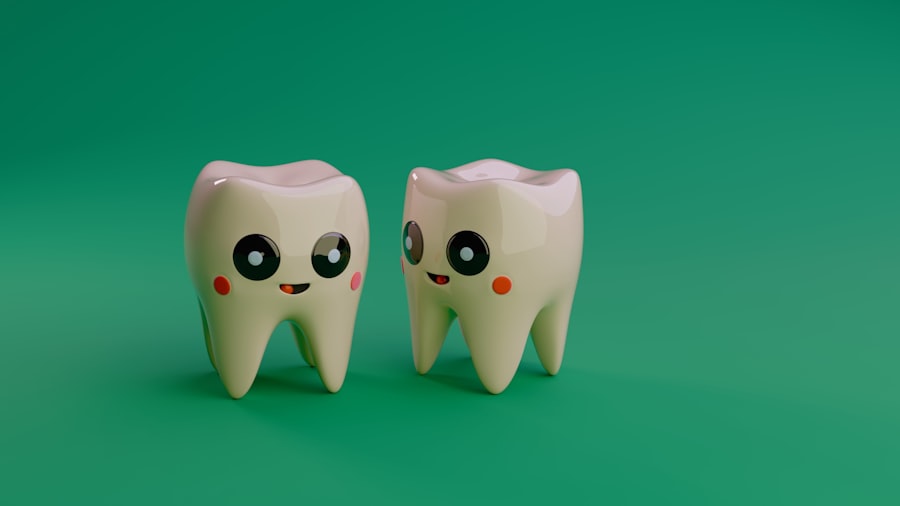In the digital age, the significance of Search Engine Optimization (SEO) in dental marketing cannot be overstated. As more patients turn to the internet to find healthcare providers, including dentists, having a robust online presence is essential for attracting new clients. SEO dental marketing involves optimizing a dental practice’s online content to improve its visibility on search engines like Google.
This process not only helps in reaching potential patients but also establishes credibility and trustworthiness in a competitive market. When a dental practice appears on the first page of search results, it is more likely to be perceived as a reputable option, leading to increased patient inquiries and appointments. Moreover, SEO dental marketing is not just about visibility; it is also about targeting the right audience.
By employing effective SEO strategies, dental practices can attract local patients who are actively searching for dental services in their area. This localized approach ensures that marketing efforts are directed toward individuals who are most likely to convert into patients. For instance, a family dentist in Austin can optimize their website for keywords like “family dentist in Austin” or “pediatric dentist near me,” making it easier for local families to find them.
This targeted visibility is crucial for building a loyal patient base and fostering long-term relationships with the community.
Key Takeaways
- SEO dental marketing is crucial for attracting and retaining patients in a competitive market.
- Using targeted keywords and local SEO strategies helps dental practices appear in relevant local searches.
- Creating engaging, informative content builds trust and educates potential patients about dental services.
- Social media presence and positive online reviews enhance reputation and patient engagement.
- Mobile optimization and paid advertising boost visibility and accessibility for dental practice websites.
Implementing Keywords and Local SEO for Dental Practices
The foundation of effective SEO dental marketing lies in the strategic implementation of keywords. Keywords are the terms and phrases that potential patients use when searching for dental services online. Identifying the right keywords involves understanding the specific needs and concerns of the target audience.
For example, a dental practice may focus on keywords related to common dental issues such as “toothache relief,” “teeth whitening,” or “orthodontic treatment.” By incorporating these keywords into website content, meta descriptions, and blog posts, practices can enhance their chances of ranking higher in search engine results. Local SEO is particularly vital for dental practices, as most patients prefer to visit a dentist within their vicinity. To optimize for local searches, practices should claim their Google My Business listing and ensure that all information—such as address, phone number, and operating hours—is accurate and up-to-date.
Additionally, incorporating local keywords into website content can significantly improve visibility. For instance, using phrases like “dentist in [City Name]” or “emergency dental care in [Neighborhood]” can help attract local traffic. Furthermore, obtaining backlinks from local directories and engaging with community events can enhance local SEO efforts, making it easier for potential patients to discover the practice.
Creating Engaging and Informative Content for Dental Websites

Content is king in the realm of SEO dental marketing. Creating engaging and informative content not only helps in attracting visitors but also establishes the practice as an authority in the field of dentistry. Dental websites should feature a variety of content types, including blog posts, articles, FAQs, and educational resources that address common patient concerns.
For example, a blog post discussing the benefits of regular dental check-ups or tips for maintaining oral hygiene can provide valuable information to potential patients while also incorporating relevant keywords. Moreover, visual content such as videos and infographics can enhance user engagement on dental websites. A video demonstrating proper brushing techniques or an infographic outlining the stages of tooth decay can capture visitors’ attention and encourage them to spend more time on the site.
This increased engagement signals to search engines that the content is valuable, potentially improving its ranking. Additionally, regularly updating content with fresh information or new services offered by the practice can keep the website relevant and encourage repeat visits from users seeking updated information.
Utilizing Social Media and Online Reviews for Dental Marketing
| Metric | Description | Typical Value/Range | Importance for Dental Marketing |
|---|---|---|---|
| Engagement Rate | Percentage of audience interacting with social media posts (likes, comments, shares) | 1% – 5% | Measures how well content resonates with potential patients |
| Number of Online Reviews | Total reviews on platforms like Google, Yelp, Facebook | 50 – 500+ reviews | Higher volume builds trust and credibility |
| Average Review Rating | Mean star rating from patient reviews | 4.0 – 5.0 stars | Influences patient decision-making and practice reputation |
| Response Time to Reviews | Average time taken to respond to patient reviews | Within 24-48 hours | Shows attentiveness and improves patient satisfaction |
| Click-Through Rate (CTR) on Social Ads | Percentage of users clicking on dental marketing ads | 0.5% – 2% | Indicates effectiveness of ad targeting and messaging |
| Follower Growth Rate | Monthly increase in social media followers | 5% – 15% | Reflects expanding reach and brand awareness |
| Conversion Rate from Social Media | Percentage of social media visitors booking appointments | 2% – 8% | Measures direct impact on patient acquisition |
Social media platforms have become powerful tools for dental marketing, allowing practices to connect with current and potential patients in a more personal and engaging manner. By maintaining an active presence on platforms like Facebook, Instagram, and Twitter, dental practices can share informative content, promote special offers, and showcase patient testimonials. For instance, posting before-and-after photos of cosmetic procedures can visually demonstrate the practice’s capabilities while also encouraging engagement through likes and shares.
Online reviews play a crucial role in shaping a dental practice’s reputation. Positive reviews on platforms like Google My Business, Yelp, or Healthgrades can significantly influence potential patients’ decisions when choosing a dentist. Encouraging satisfied patients to leave reviews can enhance the practice’s online reputation and improve its visibility in search results.
Additionally, responding to reviews—both positive and negative—demonstrates that the practice values patient feedback and is committed to providing excellent service. This level of engagement not only builds trust with prospective patients but also fosters loyalty among existing ones.
Optimizing Dental Practice Websites for Mobile Users
With an increasing number of individuals using smartphones to search for services online, optimizing dental practice websites for mobile users has become imperative. A mobile-friendly website ensures that visitors have a seamless experience when accessing information about the practice on their devices. This includes having a responsive design that adjusts to different screen sizes, fast loading times, and easy navigation.
If a website is difficult to use on a mobile device, potential patients are likely to abandon it in favor of a competitor’s site. In addition to responsive design, optimizing content for mobile users involves ensuring that important information—such as contact details, appointment scheduling options, and location—is easily accessible. Implementing click-to-call buttons allows users to contact the practice directly without having to manually dial the number.
Furthermore, utilizing local SEO strategies specifically tailored for mobile searches can enhance visibility among users looking for immediate dental services nearby. For example, optimizing for phrases like “emergency dentist near me” can help attract patients who require urgent care.
Leveraging Paid Advertising for Dental Practices

While organic SEO strategies are essential for long-term success, leveraging paid advertising can provide immediate visibility and attract new patients quickly. Pay-Per-Click (PPC) advertising through platforms like Google Ads allows dental practices to bid on specific keywords related to their services. When potential patients search for those keywords, the practice’s ad appears at the top of search results, increasing the likelihood of clicks and conversions.
For instance, a dental practice offering teeth whitening services can create targeted ads that appear when users search for “teeth whitening near me.” Social media advertising is another effective avenue for dental marketing. Platforms like Facebook and Instagram offer targeted advertising options that allow practices to reach specific demographics based on location, age, interests, and behaviors. This level of targeting ensures that marketing efforts are directed toward individuals who are most likely to be interested in dental services.
Additionally, retargeting ads can be employed to reach users who have previously visited the practice’s website but did not schedule an appointment, reminding them of the services offered.
Tracking and Analyzing SEO Dental Marketing Efforts
To gauge the effectiveness of SEO dental marketing strategies, it is crucial to track and analyze performance metrics regularly. Tools like Google Analytics provide valuable insights into website traffic, user behavior, and conversion rates. By monitoring these metrics, dental practices can identify which strategies are working well and which areas need improvement.
For example, if a particular blog post is driving significant traffic but not converting visitors into appointments, it may indicate that additional calls-to-action or appointment scheduling options are needed. Keyword tracking tools can also help practices understand how well they rank for specific search terms over time. By analyzing keyword performance data, practices can adjust their content strategy accordingly—focusing on high-performing keywords while exploring new opportunities based on emerging trends in patient searches.
Additionally, monitoring online reviews and social media engagement provides insights into patient sentiment and areas where the practice can enhance its services or communication strategies.
Hiring Professional Help for Successful SEO Dental Marketing
While many dental practices may attempt to manage their SEO marketing efforts in-house, hiring professional help can significantly enhance results. SEO experts possess specialized knowledge and experience in optimizing websites for search engines effectively. They stay updated on algorithm changes and industry trends that can impact visibility and rankings.
By partnering with an SEO agency or consultant specializing in dental marketing, practices can benefit from tailored strategies designed to meet their unique needs. Professional help extends beyond just SEO; it often includes comprehensive digital marketing services such as content creation, social media management, and paid advertising campaigns. This holistic approach ensures that all aspects of online marketing work together cohesively to drive traffic and conversions.
Moreover, outsourcing these efforts allows dental practitioners to focus on what they do best—providing quality care to their patients—while leaving the complexities of digital marketing to experts who understand how to navigate this ever-evolving landscape effectively.


